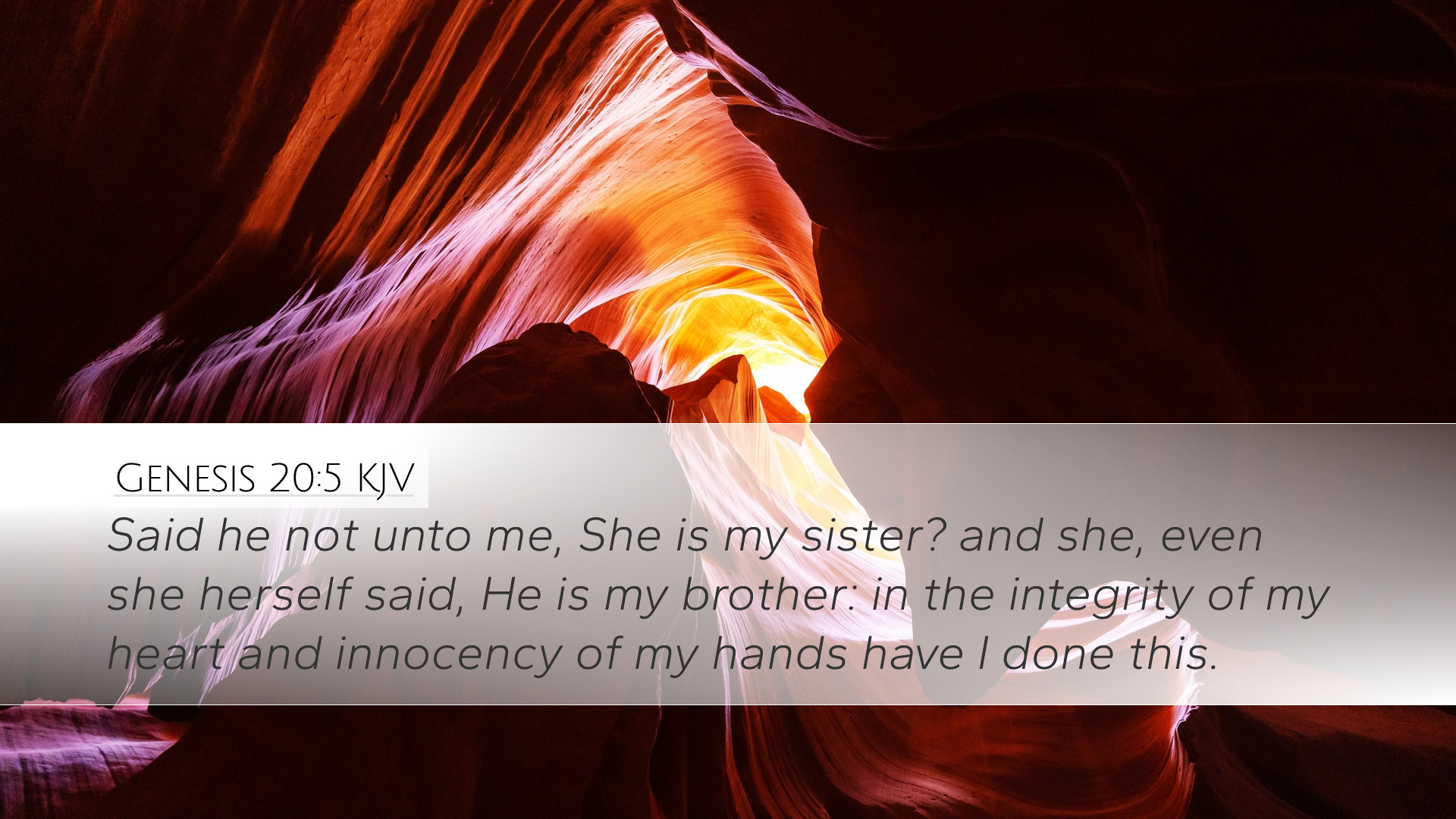Commentary on Genesis 20:5
Verse: "Said he not unto me, She is my sister? And she, even she herself said, He is my brother: in the integrity of my heart and innocency of my hands have I done this."
Introduction
This complex narrative of Genesis 20:5 offers profound insights into themes of truth, deception, and divine providence. The interaction between Abraham and Abimelech highlights moral dilemmas faced by believers, weaving together the elements of faith, fear, and the integrity of one's heart.
Contextual Analysis
The story occurs during Abraham's sojourn in Gerar, where he again claims that Sarah is his sister, which leads to significant implications for both himself and Abimelech. This reiteration of deceit messages the tension between human decisions and divine sovereignty.
Matthew Henry's Insights
Henry notes that Abraham's actions reflect not merely a lapse in faith but serve to teach us about the consequences of fear overriding faith. While Abraham attempted to protect himself through half-truths, the Lord intervened to preserve Sarah and the promise granted to Abraham.
Albert Barnes' Commentary
Barnes emphasizes that Abimelech's appeal to Abraham regarding his wife's status underscores a significant moral point. Abimelech, a man of integrity, respected what he believed to be the sanctity of marriage, albeit under false assumptions. His innocence in engaging with Sarah leads to God's revelation and the subsequent restoration of Sarah to Abraham.
Adam Clarke's Commentary
Clarke sheds light on the implications of Abraham's statement as he pleads his case. The nuanced play of words regarding familial ties raises questions about cultural norms and the nature of truth in ancient societies. Clarke points out that although Abraham is partially correct, the entire situation illustrates the danger of not trusting wholly in God's protection and promises.
Theological Implications
This narrative in Genesis speaks volumes about human vulnerability in moral choices and the profound nature of divine grace.
Faith and Fear
- Human Response: Abraham's fear leads him to compromise his faith, reflecting a common struggle among believers.
- Divine Faithfulness: Despite Abraham's failure, God's covenant is steadfast, showcasing His commitment to protect His chosen people.
The Nature of Truth
Exploring the concept of truth, this story engages us with the balance of honesty and the complexities of situational ethics.
Lessons for Pastors and Theologians
- Integrity in Leadership: Leaders must embody integrity and trustworthiness, as the repercussions of their actions could lead others astray.
- Dependence on Divine Guidance: This passage serves as a reminder of the necessity to rely on God's guidance amidst trials and fears.
- Understanding Human Weakness: Recognizing the frailties of human nature can foster compassion within the community of faith.
Conclusion
Genesis 20:5 presents a remarkable study of the intersection of truth, deception, and divine intervention. Through the somber reflection of Abraham's failure and God’s unwavering grace, scholars and practitioners are invited to examine their own lives concerning integrity and fidelity to God's promises. The exploration of this text continues to inspire discussions on the moral complexities inherent in the life of faith.


